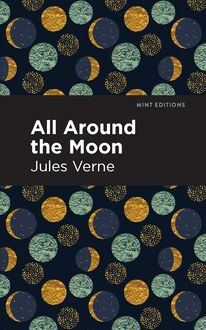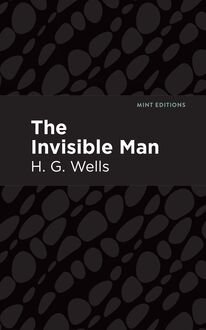-
 Univers
Univers
-
 Ebooks
Ebooks
-
 Livres audio
Livres audio
-
 Presse
Presse
-
 Podcasts
Podcasts
-
 BD
BD
-
 Documents
Documents
-
- Cours
- Révisions
- Ressources pédagogiques
- Sciences de l’éducation
- Manuels scolaires
- Langues
- Travaux de classe
- Annales de BEP
- Etudes supérieures
- Maternelle et primaire
- Fiches de lecture
- Orientation scolaire
- Méthodologie
- Corrigés de devoir
- Annales d’examens et concours
- Annales du bac
- Annales du brevet
- Rapports de stage
La lecture à portée de main
Vous pourrez modifier la taille du texte de cet ouvrage
Découvre YouScribe en t'inscrivant gratuitement
Je m'inscrisDécouvre YouScribe en t'inscrivant gratuitement
Je m'inscrisEn savoir plus
Vous pourrez modifier la taille du texte de cet ouvrage
En savoir plus

Description
The Perfect World: A Romance of Strange People and Strange Places (1922) is a science fiction novel by Ella M. Scrymsour. Thought to be a fixup novel, or a combination of two separate stories, it proves a curious sampling of many common elements of science fiction, incorporating utopian, lost race, apocalyptic, and interstellar themes. Ultimately, with its exploration of the Great War’s aftermath, it proves an entertaining work of fiction that captures the interbellum anxieties permeating European culture in the early twentieth century.
While working at Grimland Colliery, their family’s successful coalmine, cousins Alan and Desmond Forsyth discover a vast system of underground caves. There, they encounter an ancient race of horned dwarves, exiled Israelites whose civilization has lived underground for three thousand years. Hostile in nature, the dwarves pursue Alan and Desmond through dark, twisted tunnels, forcing the pair to escape by any means necessary. Eventually emerging in Australia, the Forsyth cousins learn that they have missed the Great War, which has devastated the world and ushered in the end of human life itself. At the very last moment, they escape with their uncle, who has invented an airship capable of travelling through space. Together, the trio lands on the planet Jupiter, where they encounter a race of humanoid aliens who have established a utopian civilization. The Perfect World: A Romance of Strange People and Strange Places is an entertaining work of science fiction by Ella M. Scrymsour, a relatively unknown writer with a gift for the weird and wonderful.
With a beautifully designed cover and professionally typeset manuscript, this edition of Ella M. Scrymsour’s The Perfect World: A Romance of Strange People and Strange Places is a classic of English science fiction reimagined for modern readers.
Sujets
Informations
| Publié par | Mint Editions |
| Date de parution | 02 mars 2021 |
| Nombre de lectures | 0 |
| EAN13 | 9781513277318 |
| Langue | English |
| Poids de l'ouvrage | 3 Mo |
Informations légales : prix de location à la page 0,0500€. Cette information est donnée uniquement à titre indicatif conformément à la législation en vigueur.
Extrait
The Perfect World
A Romance of Strange People and Strange Places
Ella M. Scrymsour
The Perfect World: A Romance of Strange People and Strange Places was first published in 1922.
This edition published by Mint Editions 2020.
ISBN 9781513272313 | E-ISBN 9781513277318
Published by Mint Editions®
minteditionbooks.com
Publishing Director: Jennifer Newens
Design & Production: Rachel Lopez Metzger
Project Manager: Micaela Clark
Typesetting: Westchester Publishing Services
C ONTENTS B OOK I. T HE O LD W ORLD ( Before the War ) I. S TRANGERS C OME TO M ARSHFIELDEN II. T HE C URSE III. T HE L IGHT IV. T HE O UTLET B OOK II. T HE U NDERWORLD I. A S TRANGE M EETING II. T HE O RIGIN OF THE P EOPLE III. R ELATING TO H ISTORY IV. O UT INTO THE G REAT B EYOND V. A F RIEND FROM THE E NEMY VI. T HE L AIR OF THE S ERPENT VII. O N THE W AY TO THE T OMB OF K ORAH VIII. T HE T OMB OF K ORAH IX. T HE P APYRUS X. T HE E SCAPE B OOK III. E XIT THE W ORLD ( After the War ) I. A T W ALLA B ALLA II. H OME A GAIN III. T HE A IRSHIP IV. T HE E ND OF THE W ORLD B OOK IV. T HE P ERFECT W ORLD I. I N S PACE II. A DRIFT IN THE S OLAR R EGIONS III. T HE V ISION OF A N EW W ORLD IV. J UPITER AND THE J OVIANS V. D EATH IN J UPITER VI. T HE S ACRAMENT OF S CHLERIK -I TATA VII. H ATRED ON K EEMAR VIII. T HE U NFORGIVEABLE K ISS IX. A LAN —T HE K NIGHT E RRANT X. T HE C AVE OF W HISPERING M ADNESS XI. T HE W RAITHS OF THE R ORKAS XII. T HE F ATE OF K ULMERVAN XIII. T HE S ENTENCE U PON A RRACK XIV. T HE H ALL OF S ORROWS XV. T HE T RIUMPH OF A K - ALAN XVI. T HE P ERFECT W ORLD E NVOI
BOOK I
THE OLD WORLD
( Before the War )
I
S TRANGERS C OME TO M ARSHFIELDEN
A n English summer! The birds sang merrily, and the trees bowed their heads, keeping time with the melody. The breeze whispered its accompaniment, and all the glades and woods were happy.
Marshfielden was, perhaps, one of the prettiest villages in Derbyshire. Nestling among the peaks of that lovely county, its surroundings were most picturesque. Its straggling street, for it had but one, was unspoiled by tripper or tourist, for its charms were unknown to the outside world. The road was cobbled, and boasted of no pavement, and long gardens, shining with marigolds and nasturtiums, reached down to each side of it, forming frames to the pretty, irregular little cottages with their gables and latticed windows.
The little church at the top of the street finished the picture. It was very tiny, holding only about one hundred and fifty people; but with its ivy-covered towers, and picturesque little graveyard, the vicar was a lucky man to have charge of such a place. Unmarried and friendless he had come to Marshfielden forty years before, and had lodged with Mrs. Skeet, the cobbler’s wife. Still he remained, having grown old in the service of his people.
It was a well-known fact, that “our vicar” as Mr. Winthrop was called, had during all that time never left the precincts of the parish. Children had grown up and gone away married; old people had died; but still Mr. Winthrop went on in his kind, fatherly manner, advising those who sought the benefit of his wisdom, helping those who needed his aid, and still living in the little rooms he had rented when first he came to Marshfielden, a stranger.
Marshfielden was about seven miles off the main road. As they would have to reach it by narrow lanes and rutted roads, motorists never came its way, and it retained its old-world simplicity.
Two miles to the south was a coal mine, in which most of the villagers toiled. It was quite an unimportant one, and not very deep, but it gave employment to all the natives who needed work. Strange as it seems, however, by an unwritten law, not one of the villagers entered Marshfielden in his collier dirt or collier garb. Every one of the men changed his clothes at “Grimland” as the mine district was called, and washed away the coal dust and dirt; so in the evening, when they made their way in a body to their homes, they returned as fresh and clean as they had left them in the morning.
It was, therefore, an ideal place to live in and as old Mr. Winthrop walked down the uneven street, his eyes dimmed and his thoughts were tender as he acknowledged first one, then another of his flock.
He stopped at the gate of a pretty, white cottage with a well kept garden full of sweet-smelling flowers, and greeted the woman who stood at the gate.
She was quite young and pretty, and maternal love and pride glowed in her face as she gently crooned over the sleeping babe at her breast.
“And how’s Jimmy, Mrs. Slater?” he asked.
“Very well indeed, sir, thank you.”
“And you—how are you feeling?”
“Quite all right again, now, sir.”
“That’s right. And your husband?”
“Yes, sir, he’s had a rise at the mine.”
Mr. Winthrop smiled and was about to pass on, when he noticed an underlying current of excitement in the woman’s manner. He looked at her curiously.
“What is the matter, Mrs. Slater?” he asked.
“Have you heard the news, sir?”
“No. What news?”
“I be agoin’ to have lodgers.”
“Really?”
“Well I heard only last night, sir. Bill—he came home and said as ’ow Mr. Dickson, the manager at the mine, had heard from Sir John Forsyth—”
“The new owner of Grimland?” queried Mr. Winthrop.
“Yes, sir. Well, he said as ’ow Sir John wanted both his nephews to go to the mine and learn the practical working of it—and Mr. Dickson was to find them rooms near by.”
“Well?”
“Well, Mr. Dickson knows as ’ow my ’ome is clean—” and Mrs. Slater looked around her little cottage with an air of pride.
“And ’e asks Bill if I would take them.”
“And so you are going to?”
The woman looked round her fearfully. “I’ve a spare bedroom, sir, which I’ve cleaned up, and they can have my parlour. But fancy, sir, two strangers in Marshfielden!”
“It will liven things up,” remarked the vicar “we’ve never had strangers to live here since I came—now over forty years ago.”
“No, sir, nor before that,” went on the woman in a low tone. “My grandmother used to speak of two ladies who came to Marshfielden when she was a little girl. Artists they were, and strangers. The clergyman’s wife put them up—and—and—”
“Yes?” urged Mr. Winthrop gently.
“Well, sir, they were both found dead one day, stiff and cold, sir, outside the ruins of the Priory. They had been painting, and their easels were left standing—but they were dead.”
“What has that to do with the case?” asked the vicar with a little smile.
“Don’t you see, sir,” she went on quickly, the same half-scared look coming into her eyes, “that was the ‘Curse’ that caused those mishaps, and I am afraid the ‘Curse’ will be on the two young gentlemen, too.”
“Nonsense,” laughed Mr. Winthrop, “You don’t really believe that the ‘Marshfielden Curse’ as you people call it, had anything to do with the deaths of those two lady artists that occurred over fifty years ago?”
“Indeed I do, sir,” averred the woman. “Why ever since the Priory was dismantled by Henry the Eighth, the ‘Curse’ has been on this place. That wasn’t the only case, sir. There are records of many others—but that was the last.”
“Let me see,” began the vicar, “It’s so long since I even heard it mentioned, that I’ve forgotten what it was.”
The woman’s face contracted as if she was afraid of something, she knew not what, but of something mystic, intangible, uncanny—and she repeated slowly:
When the eighth Henry fair Marshfielden’s monastery took, Its priory as a palace, its vast income to his privy purse,—The outcast prior solemnly, by candle, bell and book Upon this place for ever laid this interdict and curse :
From now until the end of time,
Whene’er a stranger come
Unto Marshfielden’s pleasaunces,
To make therein his home,
Troubles—disease—misfortunes—death—
Upon the spot shall fall.
So—an’ Marshfielden folks ye’d swell
With fair prosperity, and safely dwell,
All strangers from your gates expel,
And live cut off from all.
The vicar laughed. “Yes, it’s a pretty legend, Mrs. Slater, but remember this is the twentieth century, and nothing is likely to happen to Marshfielden, its inhabitants or its visitors, because of that. Why, I was a stranger when I came, yet nothing very terrible has happened to me during these last forty years.”
“Ah, sir, you don’t count. I mean, sir, you belong to the Priory; you are our priest. You wouldn’t come under the ‘Curse’ sir.”
“And neither will any one else, Mrs. Slater. It’s a stupid legend.—Have no fear.”
“But,” began Mrs. Slater. “How do you account for the case of—” But Mr. Winthrop lifted up a deprecatory hand.
“I cannot listen to any more, Mrs. Slater.” And a note of authority came into his voice. “Why, all this is against the religion I preach to you—never listen to tales of superstition. Have no fear, do the best you can for the two young gentlemen, and I think I can promise you that no harm will come to them or you.”
The woman shook her head, and disbelief shone in her eyes. The vicar saw it, and smiled again.
“Well, well! It remains to be proved that I am right,” said he.
“It remains to be proved, which of us is right, sir.”
“Very well, we’ll leave it at that. When do they arrive?”
“About six this evening, sir; the usual time when the men come home.”
“I will call in this evening then, and welcome them. Good-bye, Mrs. Slater, and don’t go listening to or spreading idle gossip!” And the kindly old man went away down the street.
That evening, when the bell rang to denote the return of the men-folk, every door was occupied by an eager face, anxious not only to catch sight of the two strangers, but also to take another look at the woman who had dared to defy the “Marshfielden Curse.”
For in this little village the “Curse” was a real, poignant fact, and was spoken of in the twilight with hushed tones and furtive glances. Children were quieted and terrified by it, and the fear imbibed by them in their childhood grew with them till their death. Not one of them
-
 Univers
Univers
-
 Ebooks
Ebooks
-
 Livres audio
Livres audio
-
 Presse
Presse
-
 Podcasts
Podcasts
-
 BD
BD
-
 Documents
Documents
-
Jeunesse
-
Littérature
-
Ressources professionnelles
-
Santé et bien-être
-
Savoirs
-
Education
-
Loisirs et hobbies
-
Art, musique et cinéma
-
Actualité et débat de société
-
Jeunesse
-
Littérature
-
Ressources professionnelles
-
Santé et bien-être
-
Savoirs
-
Education
-
Loisirs et hobbies
-
Art, musique et cinéma
-
Actualité et débat de société
-
Actualités
-
Lifestyle
-
Presse jeunesse
-
Presse professionnelle
-
Pratique
-
Presse sportive
-
Presse internationale
-
Culture & Médias
-
Action et Aventures
-
Science-fiction et Fantasy
-
Société
-
Jeunesse
-
Littérature
-
Ressources professionnelles
-
Santé et bien-être
-
Savoirs
-
Education
-
Loisirs et hobbies
-
Art, musique et cinéma
-
Actualité et débat de société
- Cours
- Révisions
- Ressources pédagogiques
- Sciences de l’éducation
- Manuels scolaires
- Langues
- Travaux de classe
- Annales de BEP
- Etudes supérieures
- Maternelle et primaire
- Fiches de lecture
- Orientation scolaire
- Méthodologie
- Corrigés de devoir
- Annales d’examens et concours
- Annales du bac
- Annales du brevet
- Rapports de stage



















